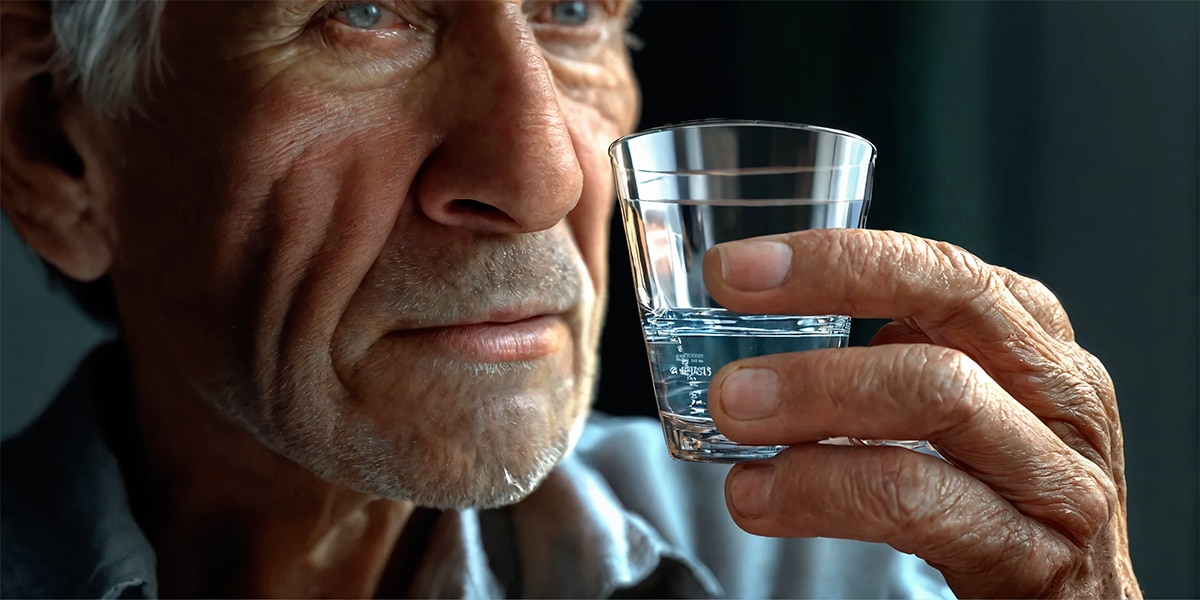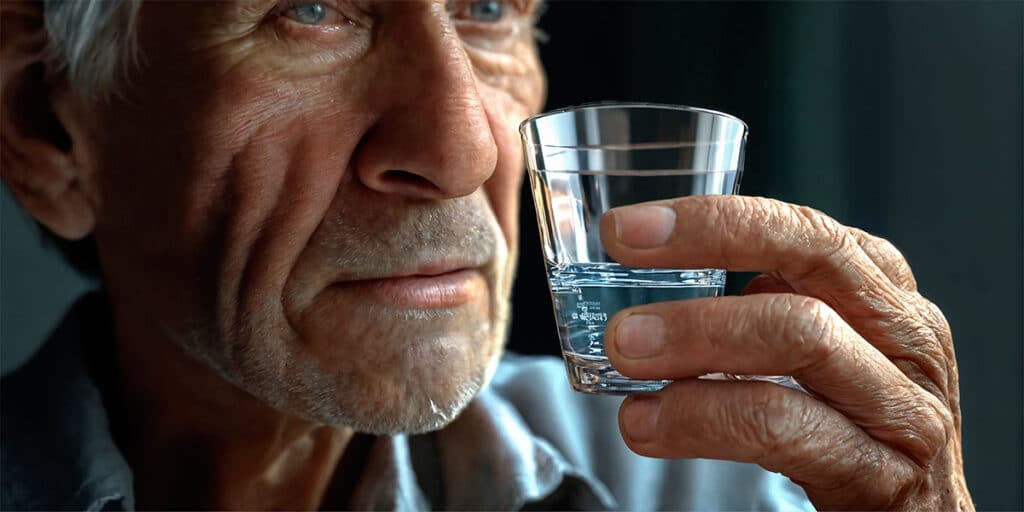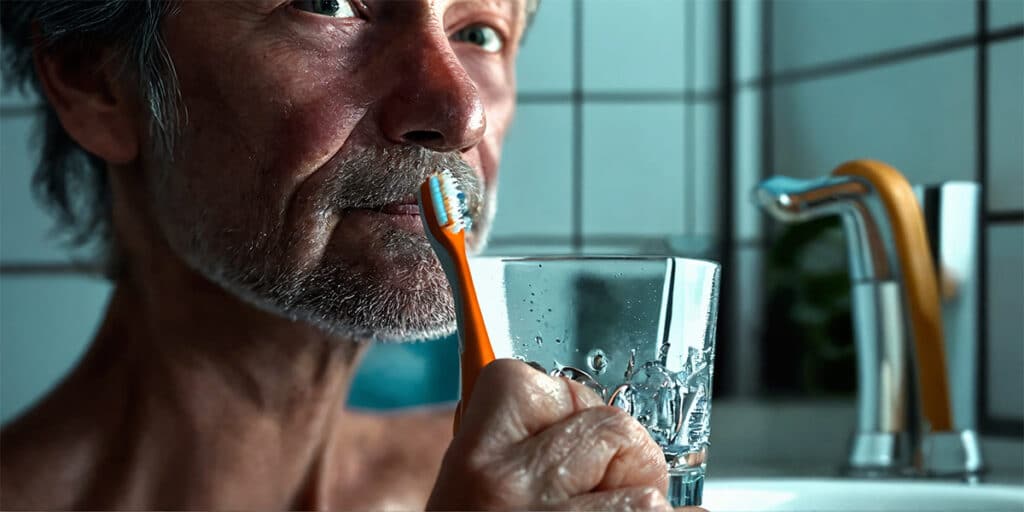In the realm of dry mouth treatment, especially for those grappling with persistent and severe symptoms, prescription medications emerge as a beacon of hope. These pharmacological interventions, specifically designed to stimulate saliva production, offer a targeted approach to alleviating the discomforts of dry mouth. Among the arsenal of treatments, pilocarpine and cevimeline stand out as primary agents in the battle against xerostomia, offering relief where over-the-counter (OTC) solutions may fall short.
Understanding Prescription Options
Pilocarpine and cevimeline, the vanguards in dry mouth treatment, operate on a simple yet profound principle: activating the body’s salivary glands to enhance natural saliva production. These medications belong to a class known as cholinergic agonists, which mimic the action of the neurotransmitter acetylcholine, encouraging salivary glands to secrete more saliva.
Pilocarpine: Approved by the FDA for the treatment of dry mouth, pilocarpine has demonstrated effectiveness in increasing saliva flow, thereby alleviating the symptoms of dry mouth. It’s suitable for various causes of xerostomia, including Sjögren’s syndrome and side effects from radiation therapy for head and neck cancers.
Cevimeline: Similarly, cevimeline works by stimulating muscarinic receptors of the salivary glands, promoting saliva secretion. It’s particularly beneficial for patients with Sjögren’s syndrome, a common autoimmune condition leading to dry mouth.
Consulting with Healthcare Providers
Embarking on a treatment plan with prescription medications requires careful consideration and guidance from a healthcare professional. This consultation is pivotal for several reasons:
Tailored Treatment: A healthcare provider can assess the severity of your dry mouth condition and recommend a medication regimen that aligns with your specific needs and health profile.
Side Effects and Interactions: Both pilocarpine and cevimeline can have side effects, such as sweating, nausea, and increased urination. A medical professional can advise on managing these effects and evaluate any potential interactions with other medications you may be taking.
Monitoring and Adjustment: Treatment with prescription medications is an ongoing process. Regular follow-ups with your healthcare provider ensure that the medication is effective and allows for adjustments as needed.
The Path to Relief
For individuals suffering from severe dry mouth, prescription medications offer a ray of hope and a path to improved quality of life. By effectively stimulating saliva production, pilocarpine and cevimeline can mitigate the discomforts associated with xerostomia, enabling patients to enjoy the simple pleasures of eating, speaking, and swallowing with ease.
However, the journey to finding the most effective treatment is highly personal and should be navigated in close consultation with healthcare professionals. They provide the expertise and support necessary to tailor treatment plans to individual needs, ensuring that patients receive the most appropriate and effective care for their dry mouth symptoms.
Readily Available Remedies for Dry Mouth
Addressing dry mouth effectively requires more than a one-size-fits-all solution. It’s about understanding the unique circumstances and needs of each individual and crafting a regimen that addresses those specificities. Let’s delve deeper into the fundamental principles that should guide anyone seeking to manage dry mouth, especially seniors who might be more susceptible to this condition.
The Personalized Approach
Every individual’s experience with dry mouth is unique, influenced by various factors such as underlying health conditions, medication use, and lifestyle habits. Recognizing this uniqueness is the first step in effectively managing dry mouth. A tailored treatment plan considers the specific causes and symptoms experienced by the individual, ensuring that the chosen remedies provide targeted relief.
Individual Needs Assessment: Begin with a thorough evaluation of your daily habits, medications, and any underlying health issues to identify potential contributors to dry mouth.
Customized Solutions: Adjust your oral care routine and lifestyle choices based on your specific triggers and symptoms. For some, increasing water intake might be enough, while others might benefit more from prescription saliva stimulants.
The Power of Combination
Combining different types of treatments can significantly enhance the effectiveness of dry mouth management. This multi-pronged approach leverages the strengths of each treatment modality to provide comprehensive relief.
OTC Products and Prescriptions: While OTC saliva substitutes might offer immediate moisturization, prescription medications can stimulate the body’s natural saliva production for longer-lasting relief.
Lifestyle Modifications: Simple changes such as using a humidifier at night or avoiding mouth-drying substances can complement medical treatments by mitigating environmental or dietary factors contributing to dry mouth.
Consultation Is Key
Navigating the myriad of available treatments for dry mouth can be daunting. That’s where professional guidance becomes invaluable. Consulting with healthcare professionals ensures that your treatment plan is not only effective but also safe, considering your overall health and potential interactions with existing medications.
Open Dialogue with Healthcare Providers: Regularly discuss your symptoms and treatment effectiveness with your dentist or doctor. Be open about any side effects or challenges you’re facing with your current regimen.
Holistic Care Consideration: Healthcare professionals can help integrate your dry mouth treatment into your broader health management plan, ensuring that it complements other treatments and addresses any underlying conditions that might be contributing to your symptoms.
Implementing These Takeaways
Adopting a personalized, combination approach and seeking professional consultation are key strategies in effectively managing dry mouth. By understanding your unique situation and leveraging a variety of treatments and lifestyle adjustments, you can achieve significant relief from dry mouth symptoms. Remember, managing dry mouth is an ongoing process that may require adjustments over time, underscoring the importance of regular check-ins with your healthcare provider to ensure that your treatment continues to meet your needs.
| Treatment Type | Product | Key Benefits |
|---|---|---|
| OTC Moisturizing Gel | Example Gel | Provides instant moisture, easy to use |
| OTC Saliva Stimulant | Example Lozenge | Stimulates natural saliva production |
| OTC Mouthwash | Alcohol-Free Mouthwash | Hydrates and cleanses, alcohol-free formula |
| Prescription Medication | Pilocarpine | Stimulates saliva production, for severe cases |
| Prescription Medication | Cevimeline | Enhances saliva secretion, targets gland function |
| OTC Hydrating Spray | Example Spray | Convenient moisture boost, portable |
| Specialty Toothpaste | High-Fluoride Toothpaste | Prevents cavities, designed for dry mouth |
| Herbal Remedies | Green Tea | Natural hydration, may enhance saliva quality |
| Humidifier | Bedroom Humidifier | Adds moisture to air, reducing night-time dryness |
| Dietary Supplement | Omega-3 Fatty Acids | May reduce inflammation, supporting salivary function |
Combining Solutions for Optimal Effect
Managing dry mouth, particularly in severe cases, often requires a multi-faceted approach. Achieving the best relief from dry mouth symptoms is not just about choosing between over-the-counter (OTC) products and prescription medications—it’s about integrating these solutions with practical lifestyle adjustments. This holistic strategy ensures that treatment is not only comprehensive but also tailored to the individual’s specific needs.
Lifestyle Adjustments
Lifestyle modifications play a crucial role in alleviating dry mouth symptoms. These adjustments aim to reduce the factors that exacerbate dryness while promoting a more saliva-friendly environment.
Hydration: Drinking plenty of water throughout the day is foundational. Keeping the body hydrated helps maintain moisture in the mouth, counteracting the dryness caused by xerostomia.
Avoiding Drying Agents: Caffeine and alcohol can significantly worsen dry mouth symptoms. Reducing or eliminating these substances from your diet can prevent further dehydration of oral tissues.
Using a Humidifier: Dry indoor air, especially during winter months, can aggravate dry mouth. Utilizing a humidifier at night adds moisture to the air, helping to keep the mouth moist.
Personal Anecdote
Jennifer, a 62-year-old who has battled with dry mouth for years, shares her experience: “I found that just using saliva substitutes wasn’t enough. It was the combination of avoiding coffee, staying hydrated, and using a humidifier at night that really made the difference. Consulting with my dentist also led me to a prescription for pilocarpine, which has been a game-changer.”
Tailored Treatment Plans
The key to effectively managing dry mouth is a personalized treatment plan that considers the individual’s health status, causes of dry mouth, and lifestyle. Collaboration with healthcare providers is essential in developing this plan.
Holistic Assessment: A comprehensive evaluation by a healthcare provider can identify the underlying causes of dry mouth, be it medication side effects, systemic diseases, or other factors. This assessment forms the basis of a tailored treatment strategy.
Integration of Treatments: Incorporating both OTC products and prescription medications where necessary, along with recommended lifestyle changes, can address dry mouth symptoms more effectively than any single solution. For example, saliva-stimulating lozenges can be used in conjunction with systemic medications like cevimeline to enhance saliva production throughout the day.
Continuous Monitoring and Adjustment: Regular follow-ups with a healthcare provider allow for the monitoring of treatment effectiveness and necessary adjustments. What works initially may need to be tweaked as conditions change or new options become available.
Expert Opinion
Dr. Emily Roberts, a specialist in geriatric dentistry, emphasizes the importance of a customized approach: “Every patient’s experience with dry mouth is unique. While prescription medications like pilocarpine can offer significant relief for some, they may not be suitable for everyone due to potential side effects. Combining medical treatments with simple lifestyle changes often yields the best outcomes.”
By adopting a comprehensive approach that combines OTC products, prescription medications, and lifestyle modifications, individuals suffering from dry mouth can achieve optimal relief. Personal anecdotes and expert opinions highlight the importance of customization in treatment plans, underscoring the need for ongoing consultation with healthcare providers to manage dry mouth effectively.
Over-the-Counter Miracles or Prescription Power?: Your FAQs Answered
Can over-the-counter products effectively manage dry mouth?
Yes, for many individuals, OTC products like moisturizing mouthwashes and saliva-stimulating gums provide sufficient relief from mild to moderate dry mouth symptoms.
When should I consider prescription medication for dry mouth?
If OTC products do not provide adequate relief, or if your dry mouth is due to an underlying health condition or medication, a prescription solution might be necessary.
Are there any side effects to prescription dry mouth medications?
Like all medications, prescription options such as pilocarpine and cevimeline can have side effects. Common ones include sweating, nausea, and increased urination. Always discuss potential side effects with your healthcare provider.
How can lifestyle changes help with dry mouth?
Adjustments such as staying well-hydrated, using a humidifier, and avoiding caffeine and alcohol can significantly alleviate dry mouth symptoms by improving overall oral environment and hydration.
Is it possible to use both OTC products and prescription medications together?
Yes, often a combination approach is most effective. However, it’s important to consult with your healthcare provider to ensure that the combination is appropriate for your specific situation.
How do I know which treatment is right for me?
Consulting with a healthcare professional is the best way to determine the most suitable treatment plan, considering your overall health, the severity of your symptoms, and your lifestyle.
Can diet impact dry mouth?
Absolutely. Consuming water-rich foods and avoiding dehydrating substances like caffeine can help manage dry mouth symptoms.
Are sugar-free gums and lozenges effective for all cases of dry mouth?
While they can stimulate saliva production and offer temporary relief, their effectiveness can vary depending on the underlying cause of dry mouth.
Can dry mouth be completely cured?
While some causes of dry mouth can be addressed directly, for many individuals, managing dry mouth is about symptom relief and prevention of complications.
How often should I visit my dentist if I have dry mouth?
Individuals with dry mouth should maintain regular dental check-ups, at least twice a year, to monitor their oral health and adjust their treatment plan as needed.
Citations
- Villa, A., Connell, C. L., & Abati, S. (2015). “Diagnosis and Management of Xerostomia and Hyposalivation.” Therapeutics and Clinical Risk Management, 11, 45-51. This article provides a comprehensive review of the causes of dry mouth and various management strategies, including the use of over-the-counter and prescription treatments.
- Fox, P. C. (2004). “Xerostomia: Recognition and Management.” Dental Clinics of North America, 48(2), 411-428. Fox’s work emphasizes the importance of recognizing dry mouth’s impact on oral health and offers insights into effective management techniques, including the role of prescription medications.
- Scully, C. (2003). “Drug Effects on Salivary Glands: Dry Mouth.” Oral Diseases, 9(4), 165-176. This study discusses various drugs’ effects on salivary glands and explores treatment options for drug-induced dry mouth, providing a scientific basis for the use of certain medications to alleviate symptoms.
- Furness, S., Worthington, H. V., Bryan, G., Birchenough, S., & McMillan, R. (2011). “Interventions for the Management of Dry Mouth: Topical Therapies.” Cochrane Database of Systematic Reviews, (12), CD008934. The Cochrane review evaluates the effectiveness of topical therapies for dry mouth, including over-the-counter products like mouthwashes and sprays, offering evidence-based guidance for their use.
- “Salivary Gland Disease.” Wikipedia. This paper provides insights into various salivary gland diseases and their treatment, including pharmacological approaches to managing symptoms of dry mouth, offering a broad perspective on the condition.








